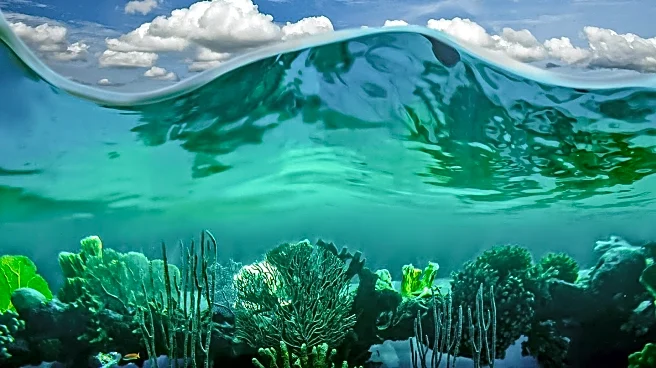What's Happening?
Sweden has established Nämndöskärgården, a new marine national park covering 25,000 hectares in the Baltic Sea. The park aims to preserve ecological diversity and promote ocean conservation by banning destructive fishing practices like bottom trawling. The initiative is part of Sweden's broader conservation goals, making it the first European country to implement such bans in marine national parks. The park is designed to be accessible to visitors through low-impact activities like sea kayaking, allowing people to engage with ocean conservation directly.
Why It's Important?
The creation of Nämndöskärgården reflects Sweden's commitment to ocean conservation and sustainable tourism. By banning bottom trawling, the park aims to protect breeding grounds for fish and repair the sea's ecosystem. This move sets a precedent for other countries, highlighting the importance of preserving marine environments. Low-impact tourism, such as sea kayaking, offers a sustainable way to enjoy nature without exploiting it, potentially leading to increased awareness and support for conservation efforts.
What's Next?
The park's establishment could lead to increased tourism and economic benefits for the region, while promoting environmental awareness. The ban on bottom trawling is set to be fully implemented by July 2026, with potential ripple effects across Europe. Conservationists hope this initiative will inspire other countries to adopt similar measures, enhancing global efforts to protect marine ecosystems. The park's success could influence future policies and conservation strategies in Sweden and beyond.
Beyond the Headlines
The park's creation highlights the challenges of engaging the public in ocean conservation, as it is difficult to care about what cannot be seen or experienced directly. By making the park accessible through activities like kayaking, Sweden aims to bridge this gap and foster a deeper connection with nature. The initiative underscores the importance of balancing conservation with sustainable tourism, offering a model for other countries to follow.










